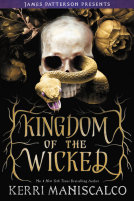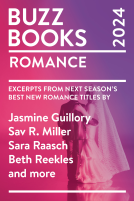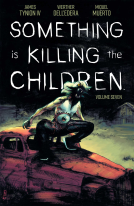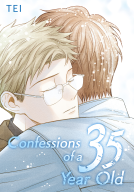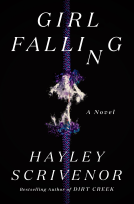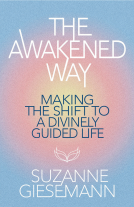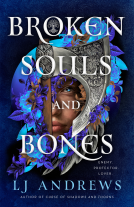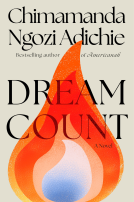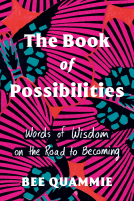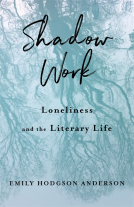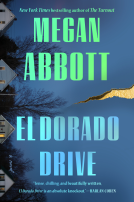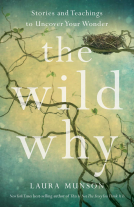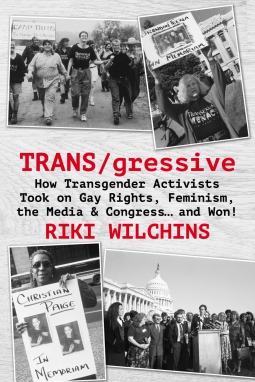
TRANS/gressive
How Transgender Activists Took on Gay Rights, Feminism, the Media & Congress… and Won!
by Riki Wilchins
This title was previously available on NetGalley and is now archived.
Send NetGalley books directly to your Kindle or Kindle app
1
To read on a Kindle or Kindle app, please add kindle@netgalley.com as an approved email address to receive files in your Amazon account. Click here for step-by-step instructions.
2
Also find your Kindle email address within your Amazon account, and enter it here.
Pub Date Jun 01 2017 | Archive Date Jun 29 2019
Riverdale Avenue Books | Magnus
Description
In the early 1990s, no one talked about transgender people, and no one knew one. We were not on TV or in movies. What formed the visible part of the transcommunity – overwhelmingly white, urban, and middle class – was also overwhelmingly focused on conferences, surgery or hormones and cisgender acceptance.
This was still a determinedly non-political population, often in defensive crouch because it was also constantly under attack by the media, police, local legislatures, feminists and even LGB-but-never-T advocates.
We were a group that still thought of ourselves as a collection of separate individuals, not a movement. What made political consciousness so difficult was that there was no “transgender section” of town, where we saw each other regularly.
And mainstream society mostly ignored us. And when it didn’t, it usually made clear it despised us. We were freaks. We were gendertrash.
We lived in a transient and indoor community that knew itself only a few days at a time during conferences at hotels out on the interstate.
But all that was about to change.
Even when politics are avoided, bringing despised and marginalized people together is itself a political act. Without realizing or intending it, the community was reaching critical mass.
Even in those pre-Internet, pre-cellphone days, enough transpeople were running into one another often enough to begin realizing we could be a force, that we didn’t really need cisgender acceptance. What we needed was our civil rights.
This is the inside story of how in just a few years, a handful of trans activists would come together in the face of enormous difficulties and opposition to launch from the very margins of society what would grow into the modern political movement for gender rights.
Available Editions
| EDITION | Ebook |
| ISBN | 9781626013674 |
| PRICE | $9.99 (USD) |
Links
Featured Reviews
 Reviewer 132350
Reviewer 132350
This, as the titles says, is an interesting and eye-opening read to me as a Londoner, but that's because things feel, seem and are so different to how things are in the US. Yes, that is a criticism of a country that likes to pretend it's at the forefront of the world, but which is increasingly showing itself to be the exact opposite of progressive and accepting. I was shocked to read of events in this tale. Shocked at how close-minded people can be. Shocked at how big of a struggle being LGBT is for people in the US, even in 2017. The book isn't anti-US per se, but it covers the actual LGBT history of the US - and it's not pretty.
It's a book that should be read in order to open people's minds, but I can't see it being read on all that large a scale in the places where it could matter most, i.e. in schools, in adult education, in public libraries. It's a little too niche for a mainstream read, but it is worth a read.
I appreciated what I learned from it and yes, I did admire the author and her efforts and what she, her friends and fellow activists have achieved, but I found it heavily 'me, me, me', which turned me off a little. I couldn't but hope that it had been told a little more impersonally, from a factual perspective. On the plus side, it's in Joe/Jane Average's language, unlike so many of the LGBT non-fic publications that I've picked up recently in an effort to educate myself.
ARC courtesy of Riverdale Avenue Books and NetGalley, for my reading pleasure.
This is such a great book! It's a pretty thorough history of trans exclusion in both feminist circles and gay/lesbian spaces, but it's shared as memoir, a first-hand account told in Wilchins' delightfully sarcastic tone. A must-read for every feminist. Even if you think you know a lot about the history of feminism and trans rights, you will learn a lot reading this. (Note: If you're cis, please remember you shouldn't use the reclaimed slurs Wilchins uses in the book.)
TRANS/gressive is a history. TRANS/gressive is a retelling. It is a history of a movement. It is a history of people growing into political consciousness. It is a history of an individual’s journey through that movement; their role within it, their view of it, and their doubts about a movement that they had helped to build.
This book outlines the changes within the Trans community. How trans individuals went from; shame to anger, from anger to empowerment, and from empowerment to the roots of victory. It is the story of how these individuals took on the entrenched views of the feminist movement and the violence of the wider community. It is a story of how the politicised trans community; lobbied, protested, set up camps, held vigils, and found community. It is the story of how they began to win victories. It is the story of division and struggle. It is the story of the disagreements that emerged in victory. This book is a good introduction to a newly emerging movement. It is a good place to start if you want to gain an understanding of how a marginalised group; grew into political awareness, found solidarity, began to fight political campaigns, began to win victories, and changed our world. It is written in a very accessible manner. It is a must read for all who wish to understand; the birth of a movement that is shaping our world and how individuals become politicised.
I will never be able to express how thankful I am that a book like this exists! As most already know, civil rights history in public schools aren’t the most in depth units taught. Unfortunately, this leaves us to learn our history on our own. Thanks to TRANS/gressive by Riki Wilchins, we’re in luck, because this is a wonderful book is here to teach us all about the transgender rights movement and its history.
From the very first page, I was learning things I had never known about the transgender community’s history. Perhaps I had heard it at one point, but I hadn’t fully realized that the gay rights movement originally excluded transgender/transsexual people. Heck, I never considered there ever being a time when feminist and progressive organizations thought we were delusional and not worth supporting. I also hadn’t known that “transgender” used to mean something so different than what it does today. Yet this book opened my eyes to these things all within the Foreword. So after finishing that, I knew I was in for quite a ride.
Being a young transgender man who grew up in an accepting family and community, I never gave much thought to things such as cisgender people accepting you one day then hating you the next, being made to think your opinion matters when it doesn’t, or simply how terrifying it can be to leave the house as your true self. While these problems persist for some people in the trans community today, I’ve never had to deal with them. Reading about all of these terrible things that people in my community have gone through really put my own privilege in perspective for me, and I am grateful for that.
I keep saying that this book is an excellent source of history, but I should also highlight that this doesn’t read like a textbook at all. The stories within are honest, personal, and emotional. Wilchins explains many of the stories through their own experiences, giving a personal touch to some of these historical events. In addition, many of the narrated events are emotionally charged–some negative, some positive–and readers will certainly feel the pain in the retelling of Brandon Teena’s murder and the relief of gay and lesbian groups finally joining forces with the trans community. The language is also explained well enough that someone with little to no previous knowledge of transgender/LGBT+ terminology could understand what’s being said. Since so many terms need to be explained throughout the book, this is also an interesting way for those who are familiar with the community to see how the language and culture of our community has changed.
At times, these events seem to have happened in a completely different world, (or maybe that’s just me being a naive millennial). For example, nowadays, it’s common to group people of sexual and romantic minorities with people of gender minorities, even though this used to be an unusual association. However, there isn’t a complete disconnect. Unfortunately, trans women of color were and still are the most targeted group in our community. It seems that mental and physical health have always been a problem in the community as well, because of such high rates of abuse, vulnerability, and discomfort with our bodies. Something I didn’t expect was the concept of not being “trans enough” to show up in this book, but it appears that policing others’ identities has always been a problem. Nevertheless, I enjoyed seeing how far we’ve come and how far we’ve yet to go.
Final thought: Trans or cis, conservative or liberal, young or old, whatever you are and however you identify, picking up this book is a good idea. Especially with the current outburst of transgender-related headlines in major news, being educated on the topic of transgender rights and history is a good idea, and TRANS/gressive by Riki Wilchins is a good place to start.
 Katie P, Reviewer
Katie P, Reviewer
This book should be a must-read for all young LGBTQ+ folks (and all cishet folks, but that's a harder sell, I know). I'm constantly amazed at how so many young people in the LGBTQ+ community, myself included, know so little about the history of LGBTQ+ folks' struggle for rights in the US. And even when we hear about history, it tends to be centered on a very certain group of people, usually middle/upper class cis white gay men and lesbians.
This book fills in the gaps in a big way. I learned so much about the history of trans activism from this book, and I know it only scratches the surface. Riki Wilchins is great at sharing history in a way that makes it engaging and interesting, and she does a great job taking credit for the important work that she did while also giving credit to the many, many other folks who worked for the rights that we young folks take for granted.
TRANS/gressive touches on issues from trans exclusion from LGBTQ+ spaces to the violence and murder of trans folks, especially trans WOC, and shows that trans rights are both a political and personal issue that deserve a place in the spotlight, both in history and today. I found this book both inspiring and humbling, both solemn and hopeful. From reading this book I not only know more about the history of trans rights and activism in the US, but also have learned more about how far we have left to go and tactics that have worked in the past. Learning from the past in order to prepare for the future is an important aspect of activism, and this book is an invaluable resource.
 Librarian 391714
Librarian 391714
Very important book that I think can be a great resource for many patrons.
 Maria Elena V, Reviewer
Maria Elena V, Reviewer
Riki Wilchins has this way of telling stories at the same time of giving facts and information that makes you want to investigate more about it. Everything about this book is human, fragile, raw, and it is a must read of intersectional feminism.
I believe most times, people shut trans people out of certain discussions because of transphobia or because it is more "comfortable" for them. This book shows that reality that people try to ignore exists, the wall built in the "accepting communities" they know and want to believe exist at the same time it gives solutions and opens up the door for discussion.
I love Wilchins writings and I look forward to read more.
I was unable to review this book because of a conflict in my schedule. Sorry for any inconvenience this has caused the publisher or the author of the work. Thank you for giving me the opportunity to review for you and I look forward to reviewing for you in the future.
 Tristan A, Reviewer
Tristan A, Reviewer
I came across this on netgalley a little while back, and have been all but desperate to read it ever since.
Pretty much what it says on the box, badass trans folks taking on the world and somehow winning. Yet, somehow, it feels like a whole lot more. We have so little LGBTQIAPN+ history - more now than we used to, but still far less than we should, and even within the stories of queer stories, it so often feels like the T is forgotten. Thus, coming across a full book of trans and queer history took me a little aback, and it took far longer to read than what I'd expected. This both caused by sudden business in my own life, but also simply because it's so much.
Wilchins doesn't stick to any single 'side' of history, neither the good nor the bad, and although the book definetly covers amazing activist work and the many ways it changed the world, it also covers many of those lost in the process - so make sure to take some time, take breaks, and pace yourself and your reading.
What makes the book really stand out for me is the fact that, whilst it tells the story of the American trans community as a more or less whole, it's written as a memoir; covering not only the goals achieved, but also Wilchins' own experiences along the way, giving, not quite a face, but rather a personality to the work done - both Wilchins' own, but also the countless friends and others that have somehow helped, or influenced and affected. Wilchins never shyes away from taking credit for all the work they've done, but they also makes sure to name the people they met through the community, and all the work they did.
A bit heavy on the language at times, making it a somewhat slow read, but all in all, a strong 4/5 stars!
 Book Trade Professional 369868
Book Trade Professional 369868
Although the timeline is difficult to follow at times, Wilchins lays out the growth of the several trans women's activist organizations she was involved in, offering perspective on the origins of GenderPAC, the Philadelphia Trans Health Conference, and the conflict over trans womens' presence at MichFest. Useful for understanding the history of public transgender activism in the United States, although more information about activism by women of color would be necessary to understand the full picture.
 Keriann D, Reviewer
Keriann D, Reviewer
This is such a great book on a very important subject and one everyone should read at some point in their lives.
From page one you begin to learn things and I felt I learned so much about a topic I was (shamefully) in the dark about
My only gripe with this is I felt the timeline could have been laid out a bit better, I did find it confusing at times but that doesn't take away from how powerful and important this story is.
I got an ARC copy of this book.
I got this book as part of a big find of a publisher that was offering so many queer books that I went a little crazy requesting them all. This was the first one I sunk my teeth into. I have known of Riki Wilchins for a few years, but never really knew her name. I knew of the Transexual Menace (spelling intentional). I cited her work in my senior thesis in college that was about setting up a queer space on campus and how we could not rely on the Women's Center or Intercultural center to provide that for us. Little did I know that Wilchins would have agreed with many of my points.
This book follows Wilchins' life work of activism from challenging the Michigan Womyn's Music Festival to taking on the Human Rights Campaign. There is so much insider juiciness in this book. If you are a queer activist or a feminist, you have to give this book a shot. There is so much in here that is not public knowledge. The stuff that is public knowledge is because of Wilchin's and her army. I was against the HRC due to its history of being anti-trans, but I didn't know fully what was going on. Turns out Wilchins and her army faced off against them for many years challenging them for the very thing I had noticed and had been furious about. The very thing that the queer group on campus I was leading was sure I was making up. Wilchins not only validated how I felt, she went into a long discussion on how the HRC had hidden its motives and would out right lie about what it was doing to protect itself. It was a wonderful feeling to finally be told that no I wasn't crazy and that someone else had already moved an army to fix the issues. The HRC has since become a much better ally.
Wilchins used "humor" to fight bigger fights. I put humor in quotes as many of her jokes came off as transphobic in general and was one of the reasons I did not attempt to join the Menace when I was in college when I first learned about them. Many of the "jokes" are referring to herself as a man in a dress or a man with a vagina on posters and fliers. I am not a woman with a dick. I don't call myself that to make a point. That is the exact opposite that I am. If she had refereed to transmen as men with vaginas then that would have been more accurate (read less transphobic as that description has been taken back by many transmen, but still tread carefully) and I wouldn't have cringed looking at her fliers. The newsletter she sent out read of a college newspaper that was trying too hard to be funny by making crass sex jokes, inflating her own ego, and again having transphobic jokes. I really could have done without all the transphobic language she used to shock people and be funny. The people she used it for were people who thought that language was correct so how is it funny or a joke? That is reinforcing their bad language.
While I have that issue with her methods, I am eternally grateful for what she was able to do and the people she was able to help. There was a section about the now defunct ISNA (Intersex Society of North America) which was also a group I followed very closely in college. There were sections on Lambda Legal and how they weren't always trans friendly. Now one of the transmen that I know is a lawyer in their trans division. It is amazing to see the progress that has been made since Wilchin began her work. It is amazing to see the changes that are less than 30 years in the making.
My biggest issue with the book is yet again transmen are relegated a background role in the movement. They are mentioned when they are useful, but they are generally not discussed as needing help or anything. Their movement does not matter, it is really the movement of transwomen and cross dressers (not the same thing, I am sad to have to make this note). The only living transmen that were even mentioned were Jamison Green who is a huge activist for transmen who was slightly brushed over and Wilchin's friend who started a transman group for police officers. The only other transman was Brandon Teena, which was a pretty amazing section of the book. That section is why I have an issue with the rest. There is great mention of the issues and what was done and then BAM background characters for the rest. Otherwise the book solely focused on transwomen and their needs while complaining that they were being excluded from movements. Seemed a bit hypocritical to me, always has. One of my biggest issues with the trans movement in general is the hypocrisy. In this case Transwomen get the show and transmen are left picking up scraps, but then complain that they are excluded from other spaces. I know part of that is transmen tend to pass better so they tend to move on with their lives. They become more than one identity. According to Wilchins transpeople who pass are transphobic and don't wish to be seen around other transpeople. This comes from someone who self-described never passes. So she creates an us-vs-them mentality of people who pass vs people who don't. According to this I am transphobic as I pass as male 100% of the time. I would like to point out that I have for the last ten years been actively fighting for trans rights, have been educating people on gender and sexuality; and have run support groups for transmasculine people (the same people that feel that transwomen have made other spaces unsafe and unwelcoming because of people like Wilchins). Yet, I am transphobic according to her logic. I will be the first to admit that I may not know the newest terms, but I try to respect everyone and learn when I come across a new identity instead of complaining that they don't fit my already preconceived notions of gender identity. Which gets me started on her trans dinosaur piece that she published that equated hormone blockers and transitioning young as not being trans. According to her logic, I am also not trans because I pass and have had an "easy" transition.
So why the four stars? This is an amazing book of history and learning. It is a book about finding yourself through activism. It is a book that reads like standpoint theory, a weakness of mine. It is a sound book and it is one I would recommend to people who are starting to get more involved in activism. This would have been five stars if it focused on the history instead of making divides of who is and is not trans, which Wilchins says that she was upset with when her group started doing it in the 90s. Yet she does it repeatedly through this book and her other writings. So take the lessons and try and do better. Take the lessons and fight. Take the lessons and try to realize times are different and that in twenty years your language will be outdated. Try to learn the new language. Try and continue improving otherwise your great work may be overshadowed by your inability to change with the times as I am afraid Wilchins' work will soon be.
 Reviewer 510061
Reviewer 510061
This was an incredibly informative read about the history of trans rights activists and their organizations/events. I wasn’t really aware of the extent of trans exclusion within the LGBT+ community before. It was shocking to me that people in an already marginalized group would shun their allies in the fight for equality; it was even more shocking to read about how there was/is elitism in the trans community regarding things like pre/post-op statuses. The descriptions of the trans fight for inclusion and equal rights were fascinating and important to have discussed. I think this topic - and a book like this - should be required in history classes. I remember having history lessons on the African American fight for civil rights, but only learned about parts of LGBT+ history like Stonewall from exposure to pop culture such as RuPaul’s Drag Race. Unfortunately the fight for basic rights isn’t over yet; it’s important for books like these to exist so we know about the sacrifices of activists that came before to inspire a new generation of activists. This was well written and conveyed the struggles facing the trans community in society today. My only complaint would be that the timeline was a bit hard to follow since it wasn’t written in chronological order, so it could have been organized a little better. Overall well done.
